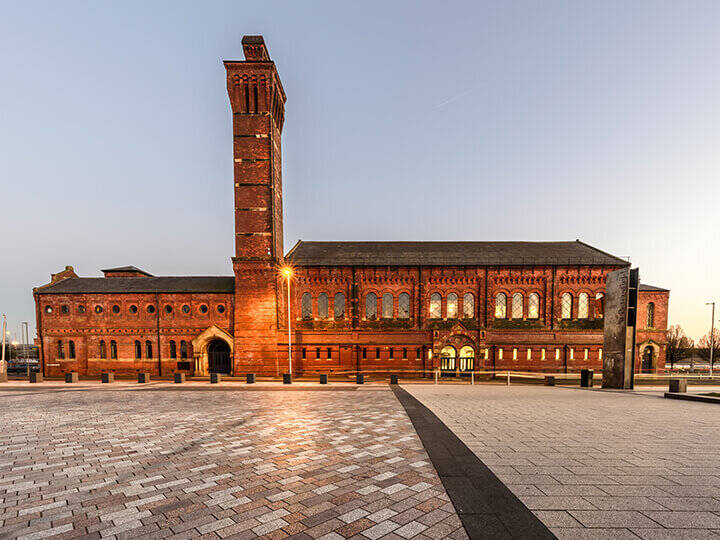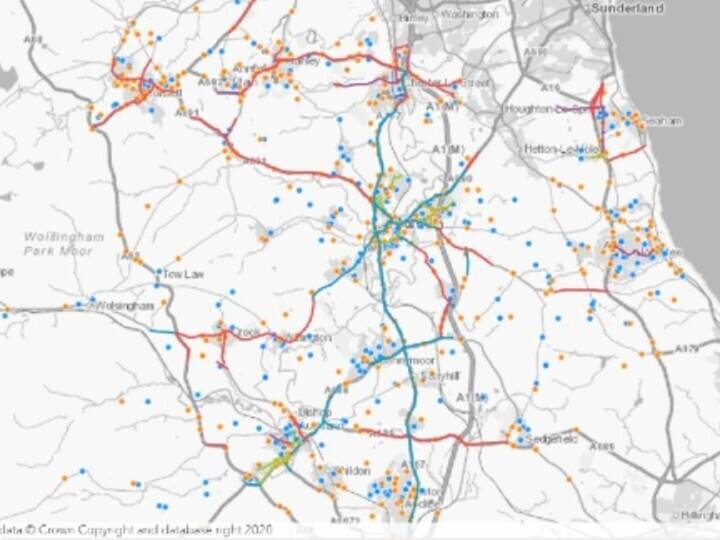NLPG Exemplar Award Runner-up – Best business process transformation 2008: Mid Devon District Council.
Transformational Government’ is about using technology to deliver better public services. In this case the example is simple.
Mid Devon District Council (MDDC) and its partner Mid Devon Community Recycling Ltd (MDCR), a not-for-profit community company, have significantly improved kerbside recycling through efficient use of the Council’s corporate address data. Indeed MDCR’s operation recently won an award as Resource Magazine’s Kerbside Recycling Project of the Year.
For the last 10 years MDCR has worked under a partnership agreement with Mid Devon District Council’s waste management section. MDCR offers a fortnightly kerbside collection of refuse, mixed garden, kitchen waste and cardboard to every house (33,000) in the Mid Devon District using MDDC’s NLPG as its sole source of addressing information. The NLPG of course is much more that a list of addresses; georeferencing for example enables MDCR to organise its operations both tactically and strategically to optimise their routes and make the best use of its resources. This was achieved by extracting the data directly from the council’s CRM, which also uses the NLPG as its source of address data. The data is also used to enable citizens to find out their collection days simply by typing in their postcode on the MDCR website.
Topological mapping supplied by the council to MDCR as sub-contractors, enables them to provide both office staff and collection crews with comprehensible map information with routes and households marked (both on screen and on paper).
The council is now working to provide their own waste management staff with a complimentary computerised mapping system to further improve communications with their contractor. The relationship also provides the council with another reliable source of intelligence to help identify potential anomalies in their NLPG, an unexpected additional benefit.
Outcomes
This project has helped to enable the smooth transition to both an alternate weekly collections cycle and to expanding dry recycling from 80% to 100% coverage. The project has enabled all refuse and recycling to be put into an easy to look up format that enabled ‘waste’ queries to be answered at the first point of contact, giving greater customer satisfaction. It has also enabled the council to meet waste collection targets, as set out in its corporate plan. These efficiency gains have been met with significant environmental and social benefits. In 2007/8 over 6,000 tonnes of dry recyclables from Mid Devon’s 33,000 households were diverted from landfill sites (an increase of 25% over the previous year). This has resulted in an annual saving of in excess of £145,000 in disposal costs (landfill tax).
The achievements realised in this project clearly demonstrate the ability of service areas within the authority to provide efficient and cost effective services to its citizens by making full use of accurate data sources, available technologies and through working in close partnership with subcontractors.
Key benefits
- The savings to the council will run into several hundred thousand pounds over the period of the contract.
- In 2008 the MDCR service cost the average household a mere 31 pence per week.
- The project helped to enable the smooth transition to both an alternate weekly collections cycle and expanded dry recycling from 80% to 100% coverage.
- All waste queries can now be handled by a single point of contact including compost collections, residual waste and dry recyclables.
- In 2008 Mid Devon households recorded a recycling rate of almost 50%, which is almost double the national average.



